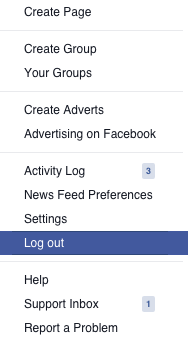Too many people think of privacy on the Internet as something they can not understand. They watch a movie like Pirates once and give up, thinking that he is on their head. While you can never be as adept at Internet privacy as Zero Cool, you can certainly increase your Internet privacy with a few simple tools and tips. Keep reading!
Use these privacy tips on simple Internet today!
private browsing really makes a difference
Each browser has a private browsing option. This includes the main actors:
- Internet Explorer
- Chrome
- Firefox
- Opera
- Safari
You can use the private browsing option to prevent the storage of cookies on your browser. These cookies are small data files that use the online properties to store data. Some do it to improve the optimization of the user, others do it to create profiles on you they sell to traders. Both are an easy way to have your Internet privacy violated by hackers who steal this information.
incognito Commissioning should be your first step to get more Internet privacy. Turn it on, and read further!
Change your IP
Ok, you changed your browser for private face the cookies tracking you, but it's not all the people who you want to follow. Your own ISP may follow you based on your IP address and use these data but please, keep the same so it is free to be hacked by anyone.
Change your IP address is as simple as choosing to use IPVanish VPN . When you connect to IPVanish you are given a different IP address, even elsewhere in the country, while your business is encrypted. These two things to add to your ISP no longer be able to see what you do online.
I suggested IPVanish specifically because they truly believe in the privacy of the internet as they are a newspaper without VPN. Some VPNs are not intended for real privacy, but IPVanish and private Internet access are definitely geared toward the privacy of their users on the Internet.
You must be logged in to every now and then

There is even easier when you visit websites have Facebook connected applications. This is no longer quite anonymously via your IP address and instead of being included in the data from your Facebook profile.
Your simplest solution is to close Facebook, and everything else, and disconnect. If you like to have open, use a tool like Ghostery to block these ad tracking tools Facebook. Better yet, keep it open in another browser by itself. Chop where you surf, and separating your recorded in the accounts can help you keep your privacy on the Internet in almost all cases. But if in doubt, disconnect.
Build Google Alerts on yourself
you googling is a vanity exercise, it is a smart Internet Privacy tip keeps you aware of what being said about you online. Anyone can publish anything they want on the Internet ... and they may just be the display of information about you. That's where Google Alerts comes in:
- Go to Google Alerts
- Enter "Your name "in the search, using abbreviations and
- Select the type of site you want to search
- monitor what is said about you directly to just people with your name
- contact the webmasters who post things about you want you do not want shared
- If they take down, not notify Google not to display search results using URL removal tool as they archive
- If the webmaster does not take down, and it falls under their jurisdiction, the Internet crime complaint Center could force
- You can always contact Google to leave their search queries, assuming it meets their suppression guidelines

Understanding what "privacy" policies are really for
Almost every website that collects data about you will have a sort of incredibly lengthy privacy policy. These will generally thin br popup along the top or bottom of which appear the first time you visit a website.
Now you can read a sentence like "Privacy Policy" and I think it's meant to protect your privacy on the Internet. This is rarely, if ever, the case. Rather, these documents are written to tell you how little privacy, they give you, they will take you, and how they will apologize to violate your privacy. These things are rarely worth the ink they even written, so be sure not to give them more information than necessary.
the entity image via Markus Mainka / Shutterstock

0 Komentar